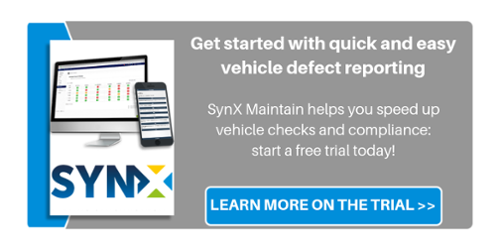
Vehicle defect reporting is key to fleets being able to tackle issues in a timely manner — i.e., before a minor issue turns into a major one. Even the smallest looking flaws can soon develop into something that can cause a vehicle to breakdown, become not compliant, affect fuel consumption efficiency or reduce its lifespan.
In a well-managed fleet, vehicle damages should be reported as quickly as possible, so that the possibility of breakdown is minimised, the vehicles are kept in a roadworthy condition and maintenance expense is kept to the minimum necessary. But according to a survey recently published by Venson, a provider of compliance and fleet services, there is still quite a high number of company car drivers who are still failing to report damages—not only in a timely fashion, but who are actually not reporting them at all.
According to the study carried out by Venson, around 33% of the company car drivers interviewed would not bother reporting minor damage to their employer. What is especially alarming about this figure is that the same question was put to company car drivers in 2017 and the figure was 17% of those interviewed, so the statistic has doubled in a year or so.
The survey published by Venson a few days ago also yielded other disappointing results as it seems drivers feel uninvolved in, or not responsible for, the maintenance and condition of the vehicles they drive. Over half (57%) of the interviewed view servicing as the sole responsibility of their employer, when drivers should in fact be doing simple maintenance checks and flagging issues. It is actually part of the legal obligations of fleet managers to have a system able to record and rectify vehicle defects or carry out servicing to keep vehicles safe as they are considered workplaces, and that inevitably involves the honest cooperation of their drivers. The mistaken habit of company drivers shrugging off their responsibilities, even though they are putting themselves at risk, was highlighted by the large percentage who admitted this in the 2015 Venson survey.
Moreover, 24% of the company car drivers interviewed admit they ignore dashboard warning lights and 43% of the participants do not top up water coolants: this attitude can compromise safety and lead to breakdowns which are a source of higher maintenance costs in the long run that could have easily been prevented if these types of issues were dealt with in good time.
It seems to be vital for companies to keep sensitising their drivers about the importance of vehicle checks and inspections. The risks to safety are extremely high, but an irresponsible attitude can also result in maintenance bills rocketing or vehicles being stopped on the roadside and not being allowed to continue their journey for being non-compliant.
Having a system that is simplifying the process of regular vehicle checks would go a long way to solving the issue; an issue that it is probably not just down to a lack of responsibility on behalf of the drivers, but also caused by the absence of a sound process for defect reporting, or one that is inefficient and time consuming. Call us if you want to get started with a fast and errorless vehicle defect reporting system—or get a free trial now.



